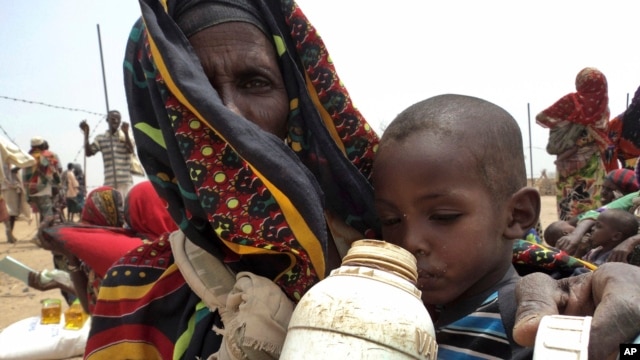The study shows Ethiopia lost an estimated $4.7 billion in 2009 because of child undernutrition. This is equivalent to 16.5 percent of the country's Gross Domestic Product.
Currently, the report finds more than two out of every five children in Ethiopia are stunted and more than 80 percent of all cases of child under-nutrition go untreated. It says malnutrition in Ethiopia causes more than 20 percent of child deaths. It says these deaths have reduced Ethiopia's workforce by eight percent.

Undernutrition is a huge drain on the country's economy, said WFP spokeswman Elizabeth Byrs.
"The study estimates that Ethiopia could reduce losses by $12.5 billion by 2025 if it reduces underweight rates to five percent and stunting to 10 percent," Byrs said.
Stunted children in primary education have a higher-grade repetition rate than non-stunted children, according to the report. In addition, it says stunted children in Ethiopia also are more likely to drop out of school.
Byrs noted stunting does not end with childhood, but remains a life-long problem with long-term consequences for both the individual and the society. The report says nearly 70 percent of adults in Ethiopia have suffered from stunting as children, which means more than 26 million people of working age have not been able to achieve their potential.
